
Birmingham Animal Removal & Exclusion Services
Home Animal Control in Birmingham, Alabama
If you have an animal infestation in your home, you need to have the wildlife removed safely. Additionally, preventing recurrence is an intricate process. Rid-A-Critter humanely controls nuisance wildlife with expert removal, repair and prevention services. Restore peace in your home with humane animal control in Birmingham.
Identifying the Signs of Wildlife Infestation
You’ll rarely encounter an animal in noisy, bright places such as your kitchen or living room. Wildlife often seek dark, quiet areas, so looking out for other signs such as the following can help you determine if you have a wildlife infestation:
- Noises like squeaking or scratching, often getting louder at dusk or during the night
- Rustling sounds coming from underneath your house or deck
- Seeing yellow or brown stains accompanied by a strong odor
- Wood chippings around your home and gnawing marks on wiring and walls
- Finding feces in your yard or home
- Overturned garbage cans and scattered trash
Home Animal Removal Birmingham: Protecting Your Home Is Vital
Removing nuisance wildlife and fortifying your home holds several benefits for you and your property. Wildlife removal and prevention helps to:
- Stop the spread of wildlife germs: Replacing insulation in your attic or other areas that have been degraded by shedding, parasites and other contaminants helps rid your home of pathogens.
- Uphold the structural integrity of your property: Gnawing, biting and scratching can cause damage if it’s near pipe work or electrical wiring.
- Prevent further damage to your roofing and ceiling: Animals like raccoons can tear through your roof, pull up shingles and damage vents.
- Fortify your home: Sealing holes, gaps and other entry points creates barriers and prevents the recurrence of wildlife infestation.
For effective Birmingham animal removal, trust Rid-A-Critter for swift and humane solutions.
Why Choose Us for Wildlife Removal?
Rid-A-Critter provides complete wildlife removal and repair services from rooftop to ground level. With years of experience in humane animal removal and exclusion and a passion for customer satisfaction, you’re assured of excellent service every time. We know animal contamination goes beyond just removing the wildlife. We also repair damage caused by animal infestation and during the animal removal process, restore your home to its pre-contamination condition.
Benefits of working with us include:
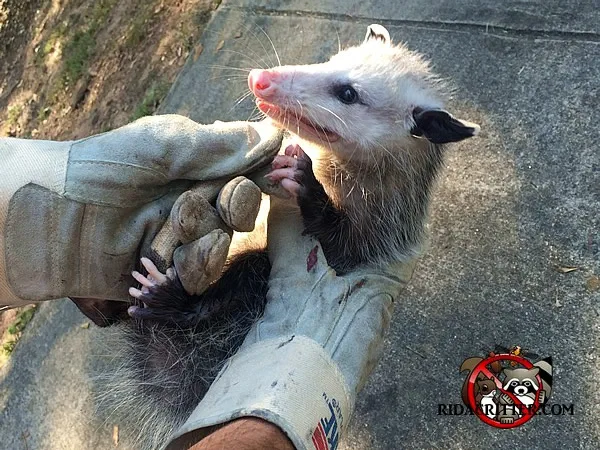
Humane Methods
We combine humane methods with local wildlife expertise and are a long-standing member of the National Wildlife Control Operators Association (NWCOA).
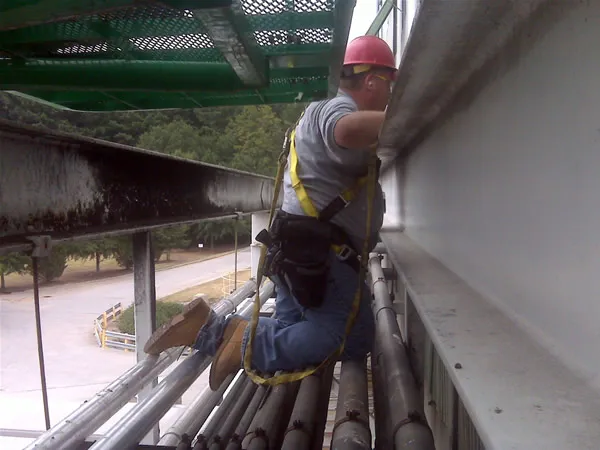
Expertise
Our professional staff is knowledgeable about animal behavior, stinging animals and preventive measures. We also have an A+ rating with the Better Business Bureau (BBB).
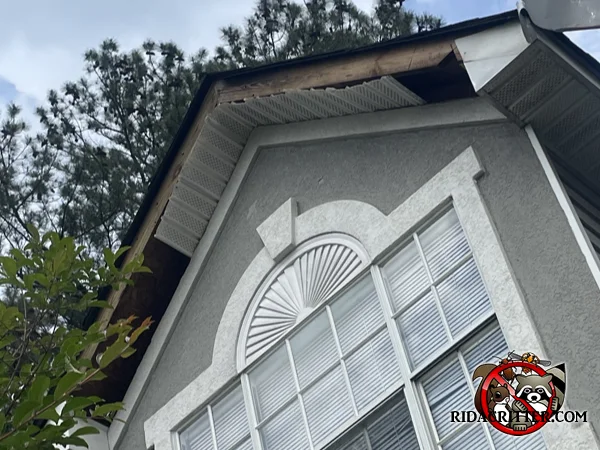
Seamless Payment
Choose between our three or four-month payment plans.
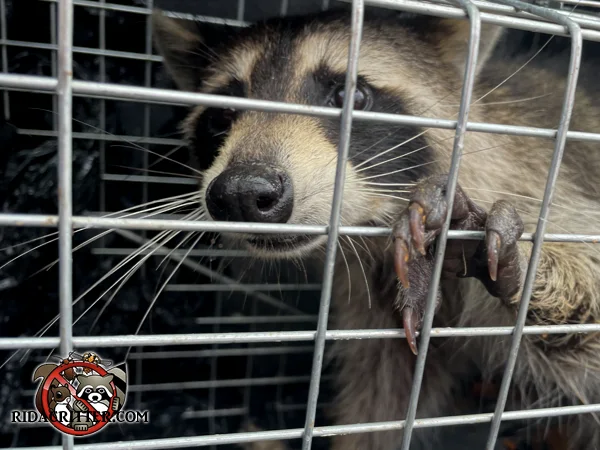
Complete Services
We inspect the infestation, humanely remove the animal, repair damage and seal holes and gaps for comprehensive wildlife control solutions.
Birmingham Animal Removal
Keep your home free of nuisance wildlife and restore tranquility with our expert services. For humane animal control in Birmingham, call us at 205-255-1590 or contact us through our online form. To get started, request your quote from us today.
Latest News from the Critter Twitter
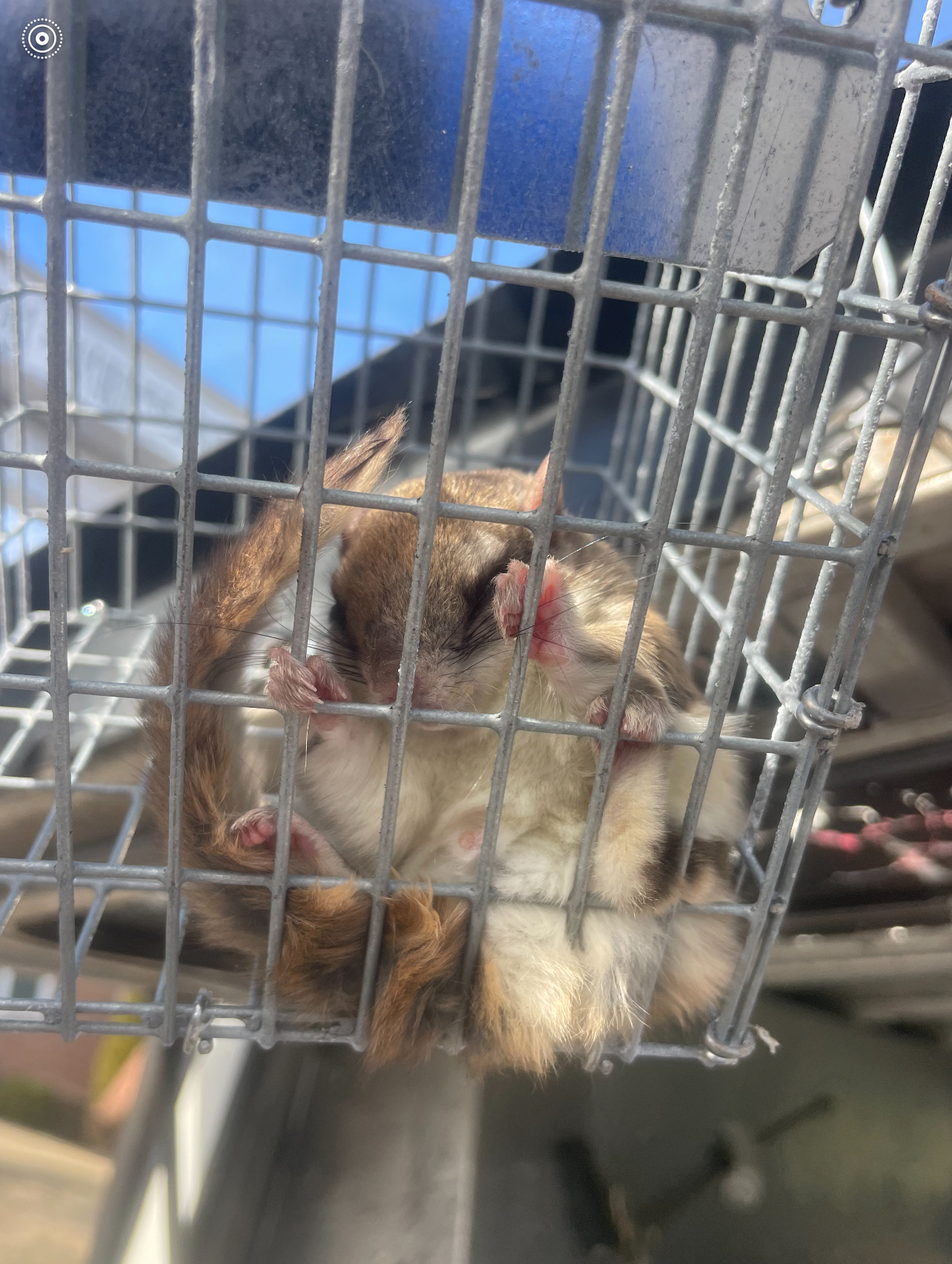
Flying Squirrel Removal Birmingham, AL
Removed a couple of flying squirrels from a home in Birmingham, AL today. These guys are really cute until they keep you up at night chasing and playing around in your attic. Seems to be lots of flying squirrels in the Birmingham area.
Chris Scott
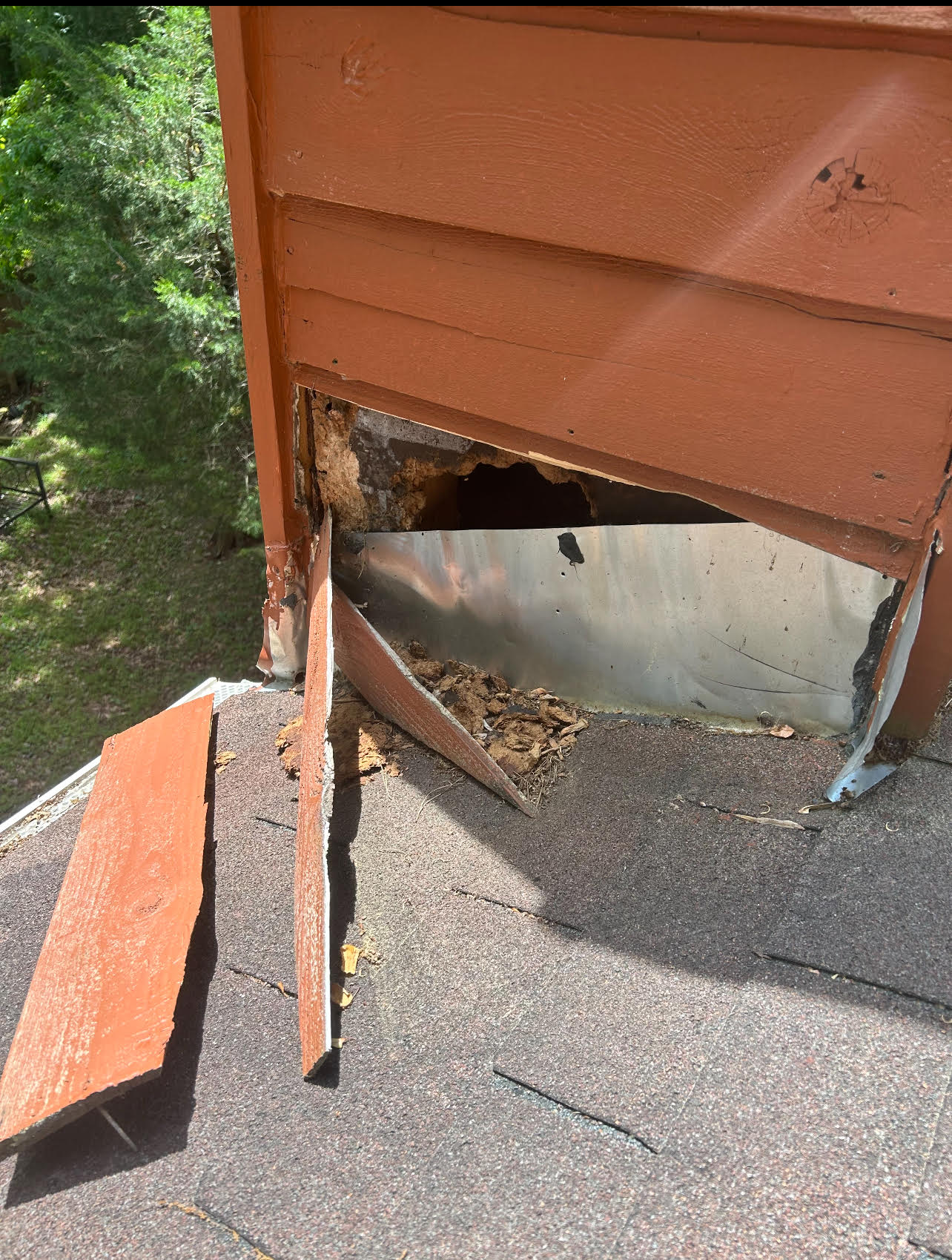
Hoover Alabama Raccoon Job
This is the backside of a chimney in Hoover Alabama. This is a common area raccoons will use to access a home's attic. Raccoons have strong hands and can easily pull loose boards apart to gain entry. We will get the raccoons out and seal the entire home to prevent future raccoons (or any other vermin) from getting into the attic again. Raccoons can be very difficult to deal with in the Spring when they have young present.
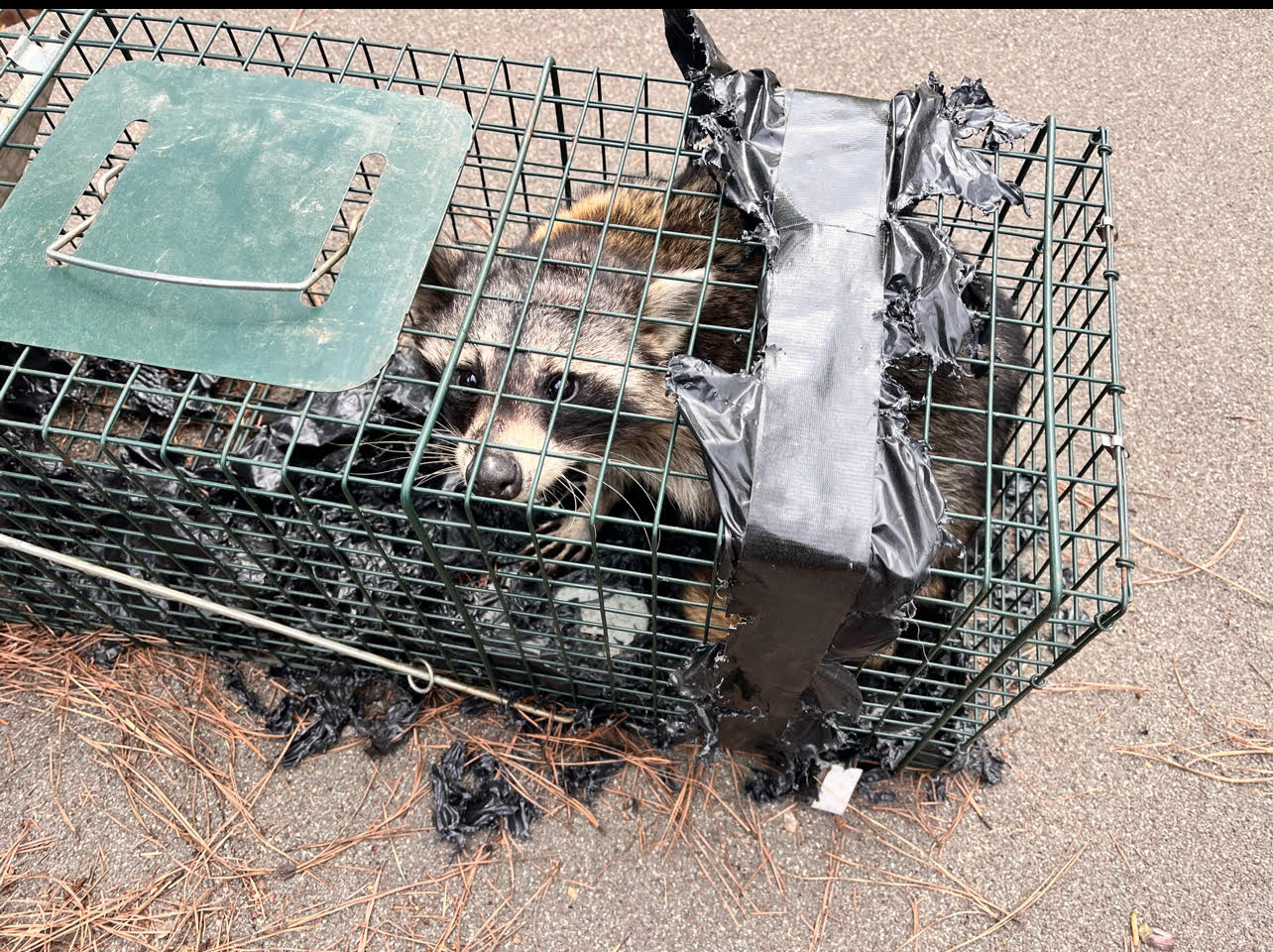
Hoover Alabama Caught Raccoon
Didn't take long to catch that raccoon in Hoover Alamba. They are cute little guys, but they are defiantly not friendly! Traps are reset and there are likely more raccoons to remove. We specialize in animal removal and prevention. Don't share your home or attic space with wild animals. They can do a lot of damage if left to live there. Call Ridacritter for the best animal removal and prevention service.
Richard Adcock
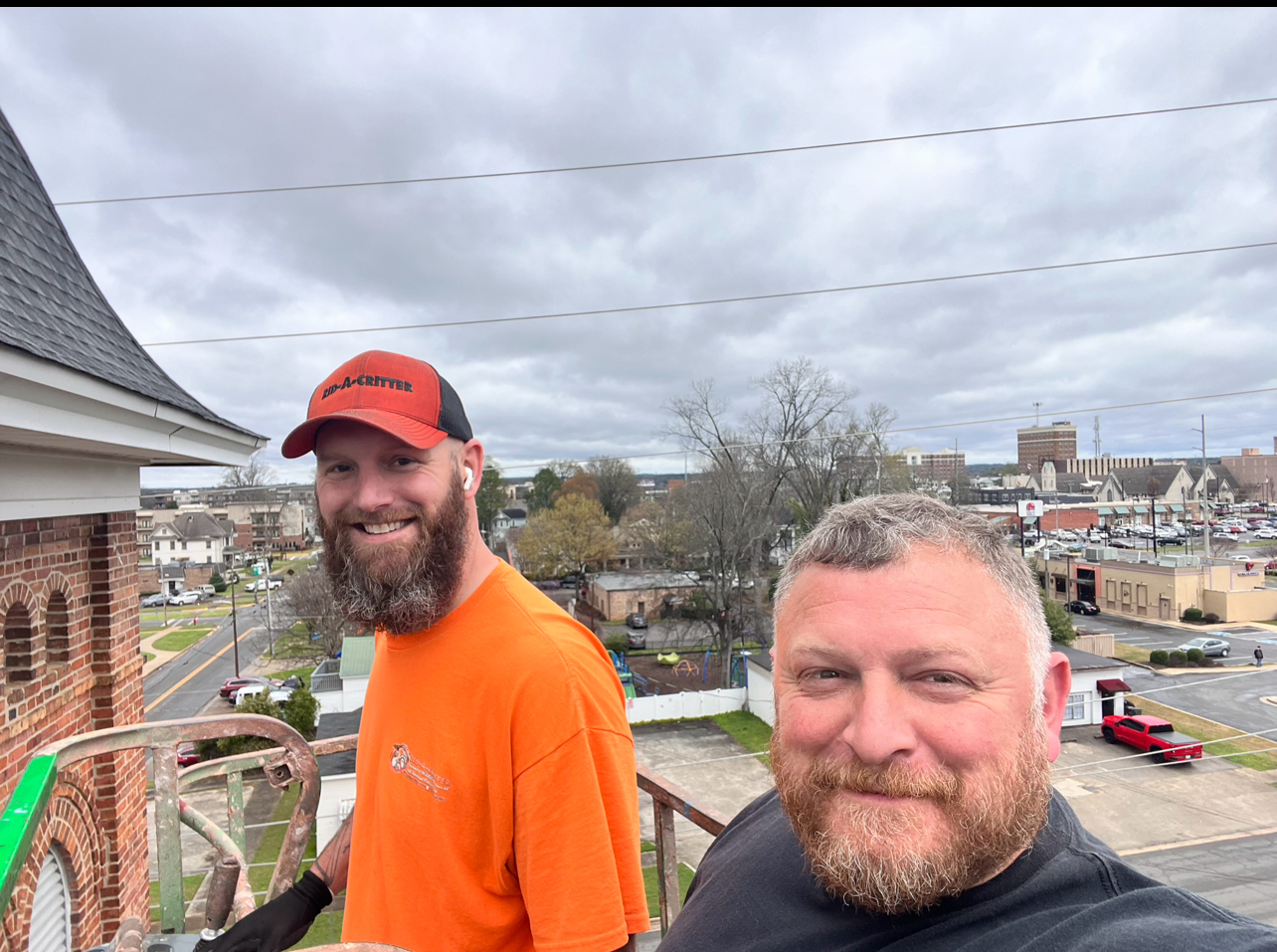
Justin and Chris Sealing a Church Against Bats in Birmingham, AL
Justin Arnold and Chris Scott are using a lift to safely access very high areas of a Birmingham Alabama church to seal it against bats. Ridacritter does a lot of bat removal and bat prevention jobs for schools and churches. For some reason bats really like large structures like these. I think they can hang out for a long time largely unnoticed by people. We seal all gaps, cracks, crevasses, vents and holes to keep bats out for good.
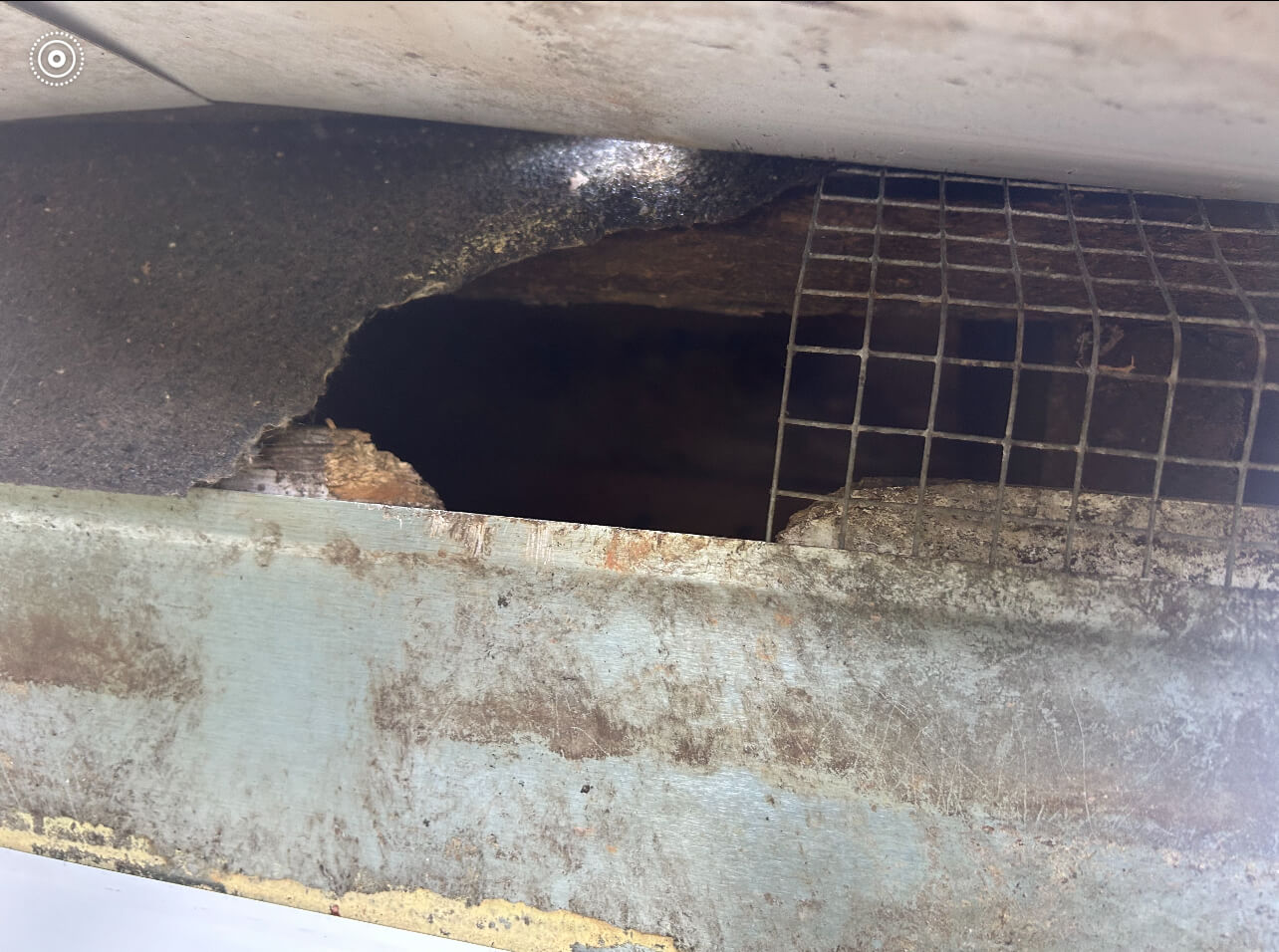
Squirrel hole Vestavia Hills
Homeowner couldn't understand why he still had squirrels in his attic after he paid his handyman to seal his house. This picture is just one example of the incomplete work done. The hardware cloth stopped well short leaving a vulnerable area and the squirrels wasted no time using it. There are also some roof vents that are wide open for easy access for the squirrels. No problem, Ridacritter is here, and we will seal the home tight! No more squirrels in this Vestavia Hills house.
Chris Scott
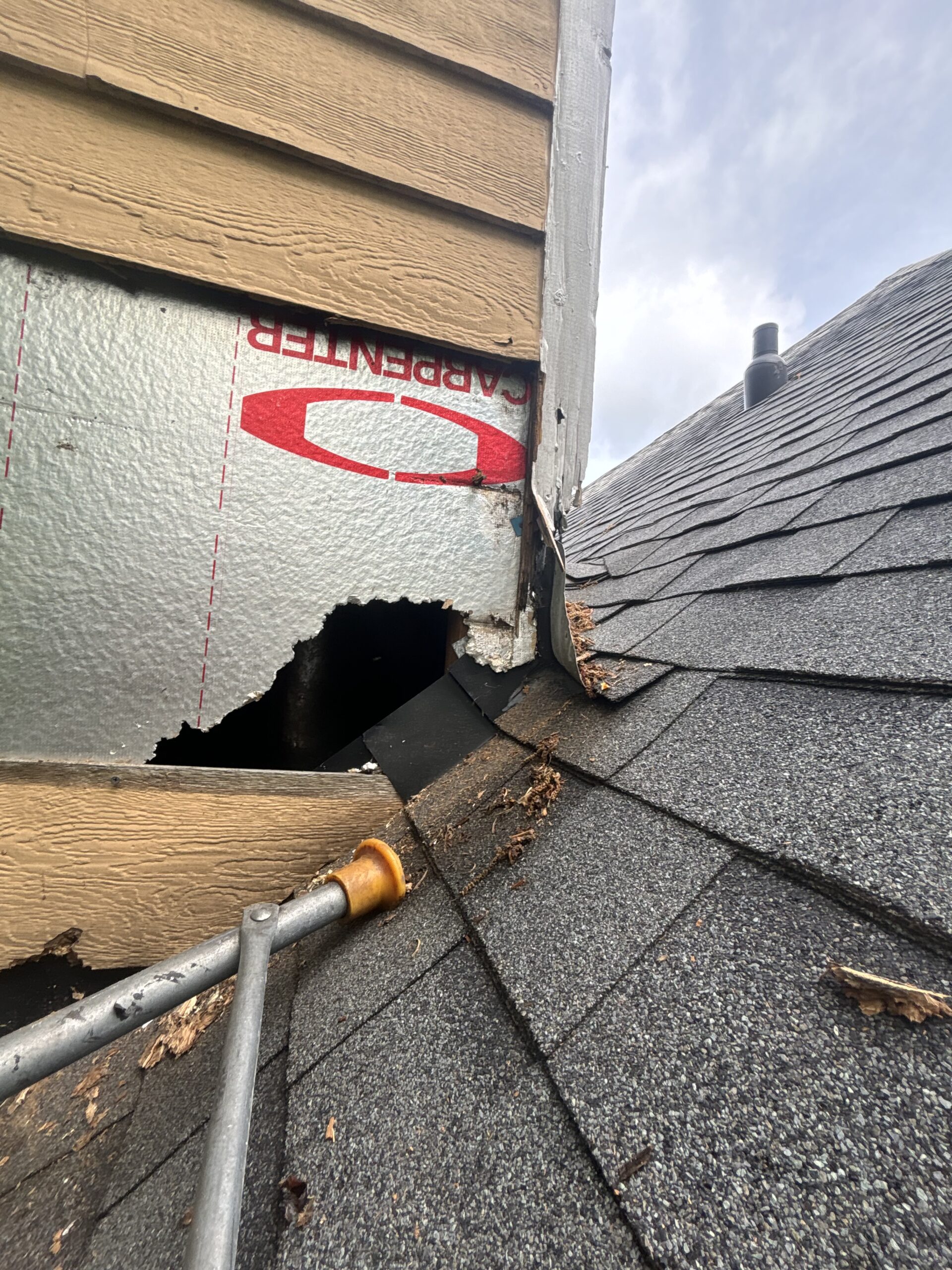
Destructive squirrels in Leeds, AL
It took a few minutes to locate on this large house, but I found it. There are several ways squirrels could get into this home, but this is their primary entry. This area of a chimney is often used by squirrels because over time this area is sometimes weakened by rainwater. The squirrels will be trapped, removed and relocated elsewhere and this Leeds, AL home sealed to prevent future squirrels.
Chris Scott
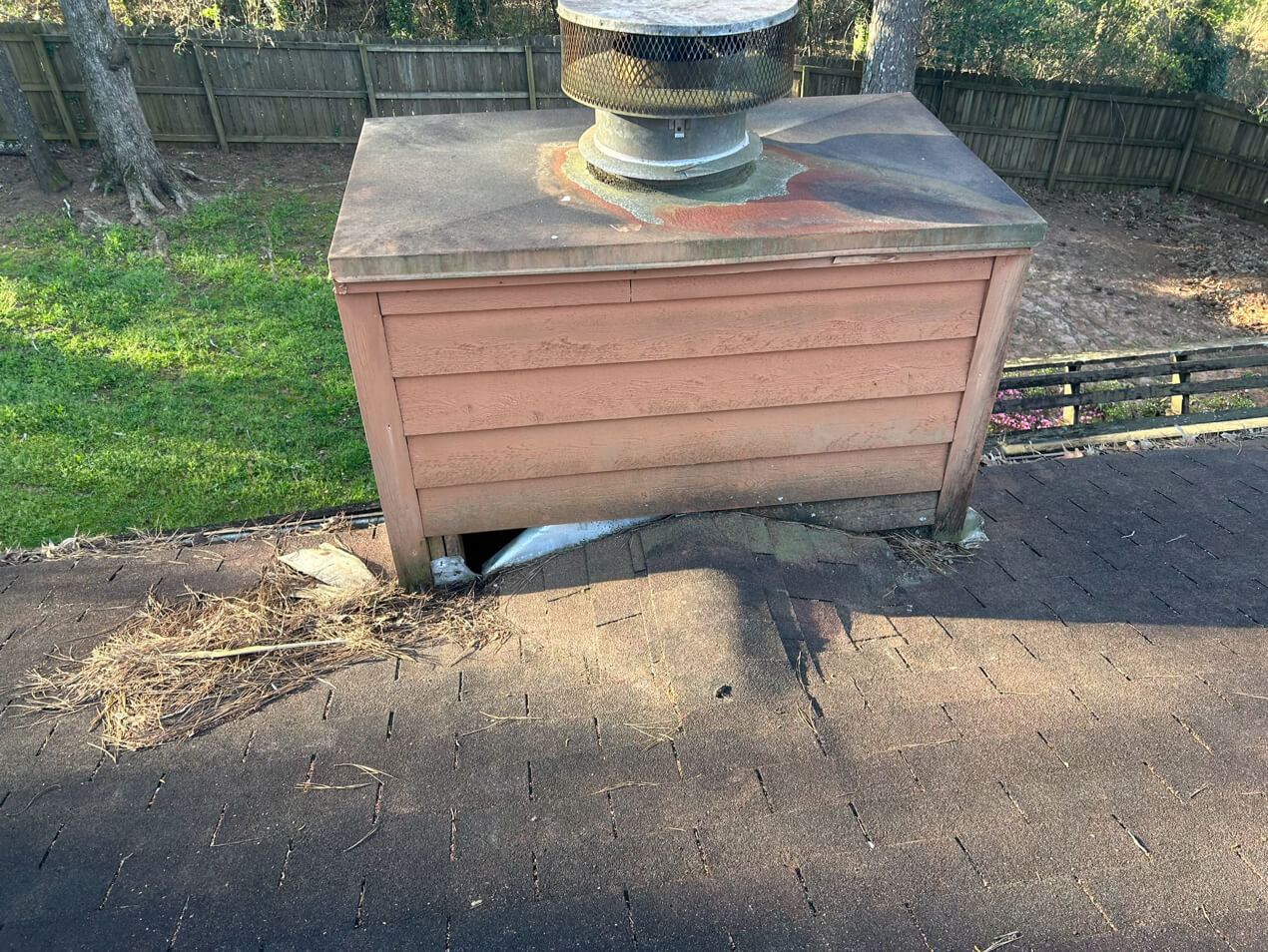
Another Hoover, AL Attic Raccoon Removal
This Hoover, Al customer called Ridacritter reporting they saw multiple raccoons climbing the side of their house. They had been hearing noises in the attic for the last few days. The sounds of scratching and running around were keeping them up at night. We do many raccoon removal jobs in the spring as they have their young and raise them. We will seal this house tight to keep all animals out.
Chris Scott

Bama work truck clean and ready for new critter adventures
Spent a beautiful Sunday morning cleaning up the critter truck. I'm looking forward to a new week of chasing critters and solving critter problems. Look out squirrels, bats, rats etc in Birmingham AL were coming for ya.
Chris Scott

Vestavia Hills, AL bats in a gable vent
This picture comes from a Vestavia Hills, AL home with bats. This is a gable vent where bats have penetrated the bug screen and are now inside the actual attic making a mess, you can see bats both inside and outside of the screen as well as guano both inside and outside. Not a big deal for Ridacritter. We specialize in the removal, prevention and cleanup of bat infestations.
Chris Scott

Squirrel hole in soffit vent Birmingham, AL
This is a actually a pretty common sight. Squirrels, rodents, raccoons etc will use the soffit vents to enter an attic. This picture is from a Birmingham, AL residence with squirrels. We will quickly remove the squirrels and seal up the house to prevent future squirrels from inhabiting this house.
Chris Scott
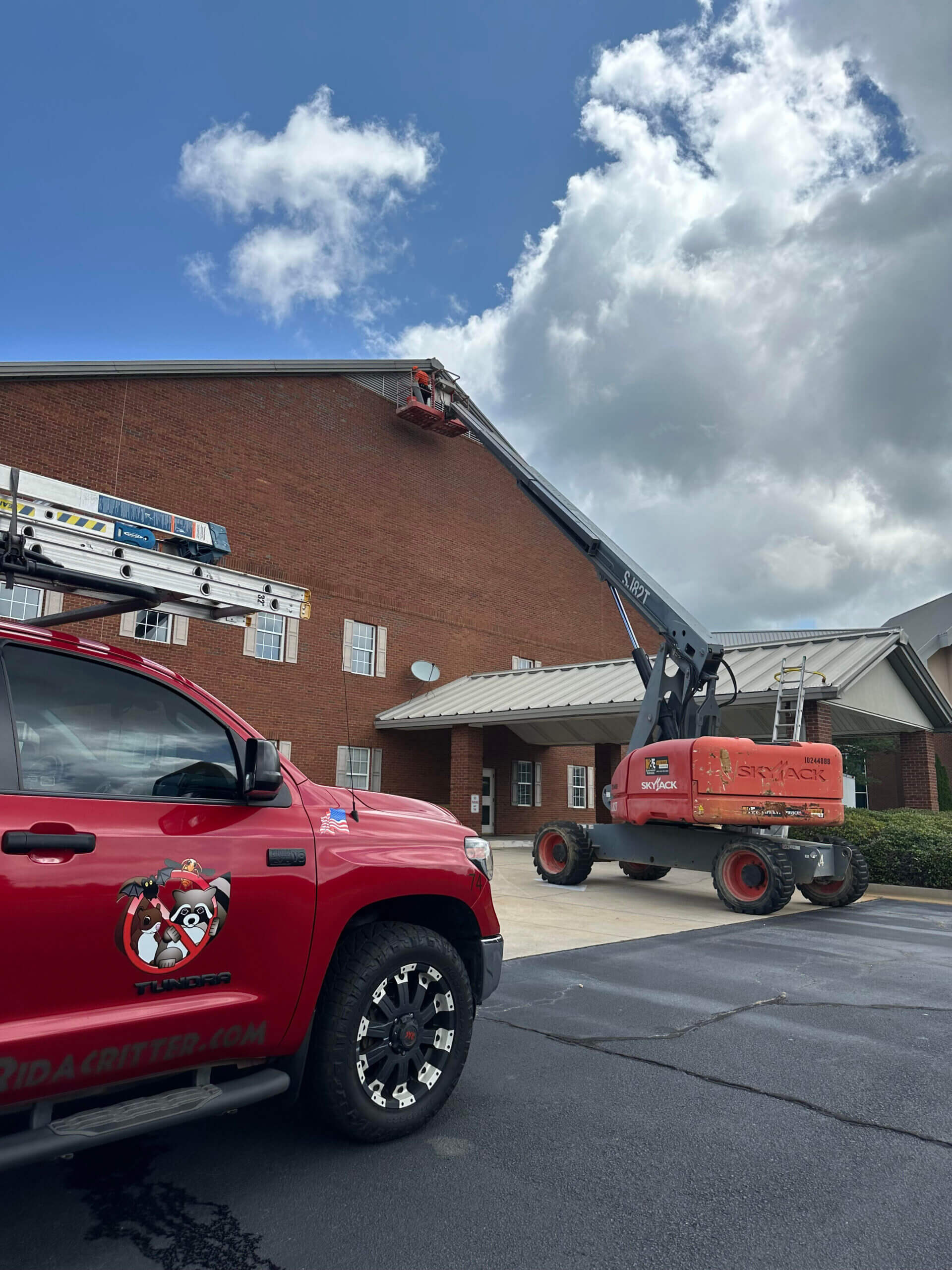
Commerical building in Birmingham, AL bat removal and sealing
Sometimes we have to rent aerial lift equipment in order to safely reach high or difficult locations. This is a commercial bat job in the Birmingham, AL area. Ridacritter gets bats out of many large buildings like churches, schools and government buildings. Call Ridacritter for your free quote on bat removal and prevention.
Chris Scott
